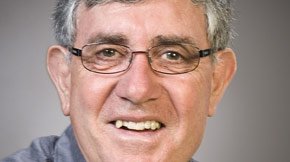Professor Sir Paul Terence Callaghan, 64, one of New Zealand’s most honoured scientists, died in Wellington today having fought a stoic fight against the bowel cancer which he was diagnosed with in 2008.

Sir Paul, a former New Zealander of the Year (see right), and a Fellow of the Royal Society of London, winner of the nation’s top science prize, the Rutherford medal, co-winner of the prime minister’s Science Prize, recipient of the Sir Peter Blake medal, and the Gunther Laukien Prize for work in magnetic resonance spent his last years not only promoting science and technology — and their links to economic success — but his wider visions for the nation.
He founded the MacDiarmid Institute for Advanced Materials and Nanotechnology, which has become a centre of excellence for research in new materials and Sir Paul fostered a culture there that encouraged a new generation of scientists to also be effective science communicators.
Magritek, a high-tech company he helped found, was part of his advocacy for a high-tech future for the nation, and he cautioned that taxpayer funding should not be poured blindly into biotech or “clean tech”. Instead the money provided for research should be doubled to bring bright ideas out of the woodwork. “We will be good at what we are good at,” he said..” We can’t know in advance which fields will be most productive”.
And he didn’t mince his words in other sectors, accusing New Zealanders of specialising in “hypocrisy and cliche” when they claimed to be clean-and-green after fellling two-thirds of their native forests to create farmland, while driving hundreds of species to extinction.
A director of Zealandia, the fenced “mainlaind island” at Wellington, he proposed putting such reserves near remaining forests and national parks to provide reservoirs of native birds to re-occupy the wild lands.
At one point Sir Paul talked of the cancer killing him as “just a bit of a perturbation” in his life: “I’ve got some cells inside me and suddenly they’re starting to misbehave. But they’re mine, it’s not some foreign disease. I don’t feel a malevolent presence.”
But the Alan MacDiarmid Professor of Physical Sciences at Victoria University of Wellington noted in another interview from his sickbed that science could not tell people how to live as humans: “It cannot solve human ethical issues”.
He was happiest teaching physics to advanced undergraduates, opening their eyes to the astonishing insights of physics, and the most moving experience had been in the moments of discovery, seeing something new in nature for the first time. At 36, after a successful experiment, he lay awake all night contemplating the beauty of the atomic nucleus in its dance.
“People have their religious moments,” he recalled. “I’ve never had one of those. This was a scientific moment – and it was pretty cool. Every human being should have one of those in their life”.
Links:
Sir Paul named New Zealander of the year – TVNZ interview
What is there to be afraid of? – Sunday Star-Times
Sir Paul speaks at the Bright Ideas Challenge 2010
Science guru’s other first prize – New Zealand Herald